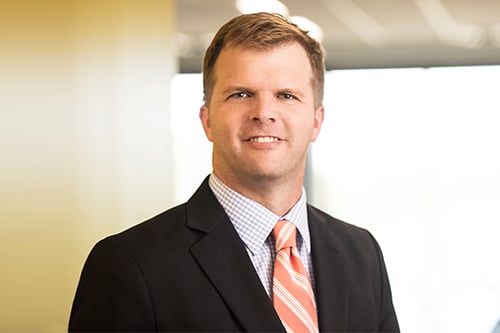

The fallout from the COVID-19 pandemic has brought risk mitigation to the fore for all companies. Aaron Parker, vice president of client experience at MJ Insurance, tells IBA how the agency has evolved with risk management at its core.
IBA: How would you describe MJ Insurance's approach to risk management?
Aaron Parker: Risk management is a core component of our consulting practice. Our approach and the capabilities that we've developed go beyond the traditional insurance placement aspect of our industry. Where we've evolved is through an appreciation that each of our clients’ businesses and risk profiles are unique and that, in order to identify and provide impactful risk management solutions, we have to understand our clients’ profiles first, and then use quantitative and qualitative data to evaluate and analyze their profile in order to develop effective risk management solutions.
IBA: How has MJ Insurance advised clients during the coronavirus outbreak?
AP: Our primary approach has been to engage in direct conversation with our clients. They're tackling the crisis through their own individual lens, both in terms of their immediate response and then as they adapt to a new normal as we move into the rest of the summer and the fall with the effects of the coronavirus, which are likely to remain and forever be a part of the business landscape.
Alongside that has been an educational approach tied to the speed with which information has developed. That includes state-by-state rulemaking; federal, state and local guidelines; and best practice opportunities for specific industries. For every industry that we work with, understanding that those risk profiles are different, we've had to be in front of them with best-practice solutions that meet their needs.
We've also hosted some webinars, and we have a COVID-19 resource center that's broken out to provide not only the best-practice guidance, but also to keep our clients informed and up to date on legislative matters and on insurance company positions from a premium forbearance position, as well as adjustments to a client's risk profile exposure base that may be happening mid-term.
IBA: What are the key concerns your clients have about their evolving risk profiles?
AP: First and foremost, our clients are concerned about taking care of their employees, and we've seen this manifest itself in a number of different ways. The first way is around, “If we can continue to operate, how do we compensate our people?”, and from the insurance and risk management perspective, the questions are centered around, “How do we operate in a safe manner, such that our employees are not exposed to the coronavirus or are best protected?” That comes from guidance on safe work practices and guidance from federal agencies, inclusive of personal protective equipment.
Also tied into that is workers’ compensation coverage and the understanding of “Should my employee contract coronavirus while working, will there be workers’ compensation coverage?” From there, it's how do they prepare for the next interruption, whether that be a pandemic or some other type of event.
At MJ, we have been working with many of our clients even before the coronavirus outbreak on business continuity planning and making sure that our clients felt prepared to respond in the event that their business is interrupted, whether that be from a natural disaster, from a pandemic or a cyber breach. We have met the call and the needs of our clients, who have sought guidance and counsel on preparing for an interruption.
IBA: More broadly, what value can risk-management-minded insurance agencies provide in times of crisis?
AP: When we think about helping our clients optimize their risk profiles, one aspect of that is their confidence in their insurance program and risk management program. Specifically, we're helping our clients prepare for when an event happens and making sure that, from their perspective, they are confident that they have the programs in place to respond. That confidence equips them with the ability to operate and the ability to take on new business challenges, understanding that they've got the programs in place to position them and their people to respond, limiting any impact of a potential event.
The second thing that we're able to do as a risk-minded agency is, through our consultative practice, have those proactive dialogues with our clients about their broader business goals and initiatives so we can be asking those business-related questions and applying strategic solutions that position them to tackle the challenges that are likely to arise.
We are not in a reactive state responding to a crisis because our clients have an enhanced degree of confidence, and, in the event of a crisis, issues aren’t surfacing that we weren't already aware of and already in conversation with them about.
